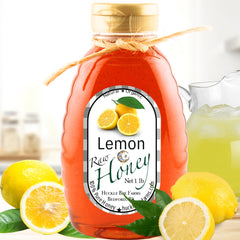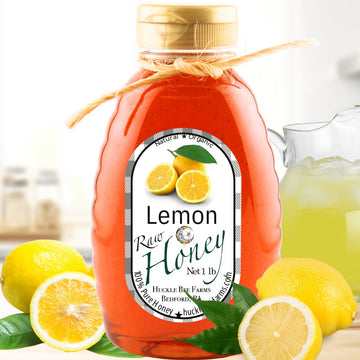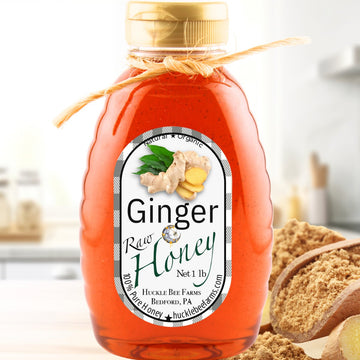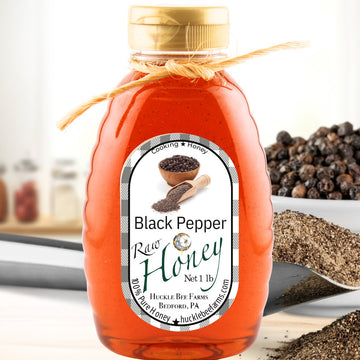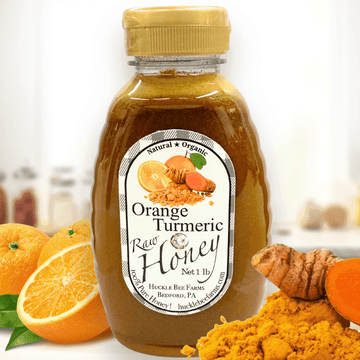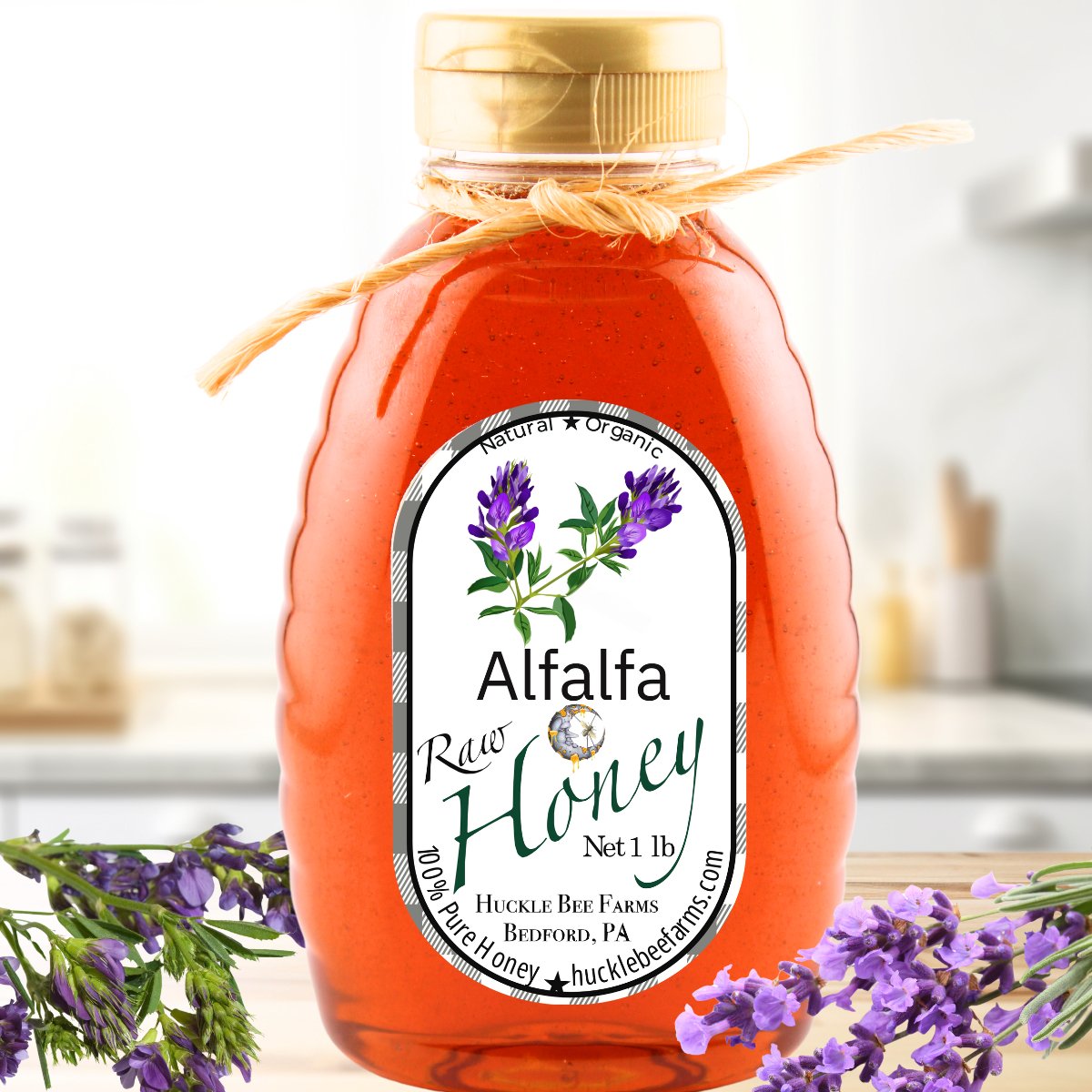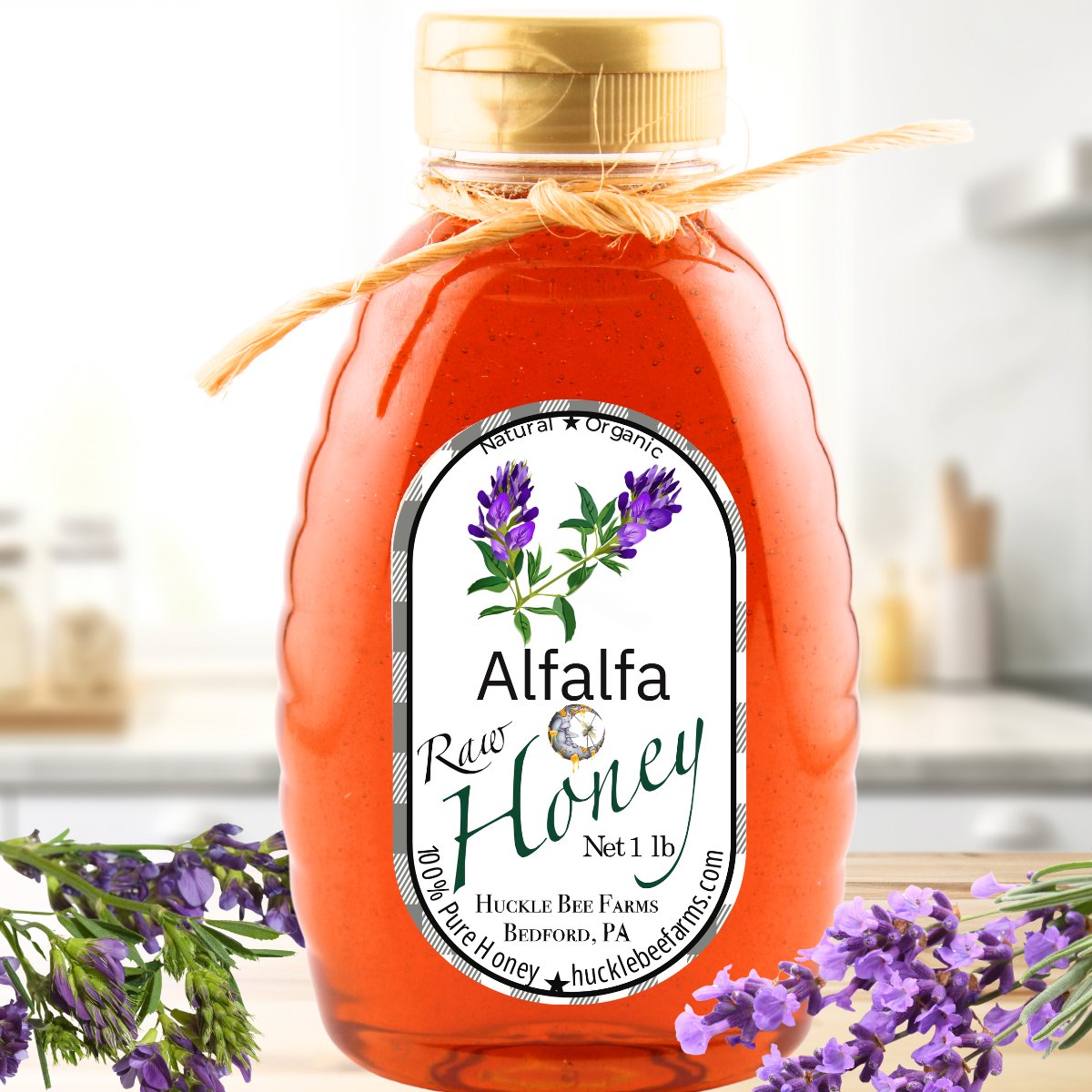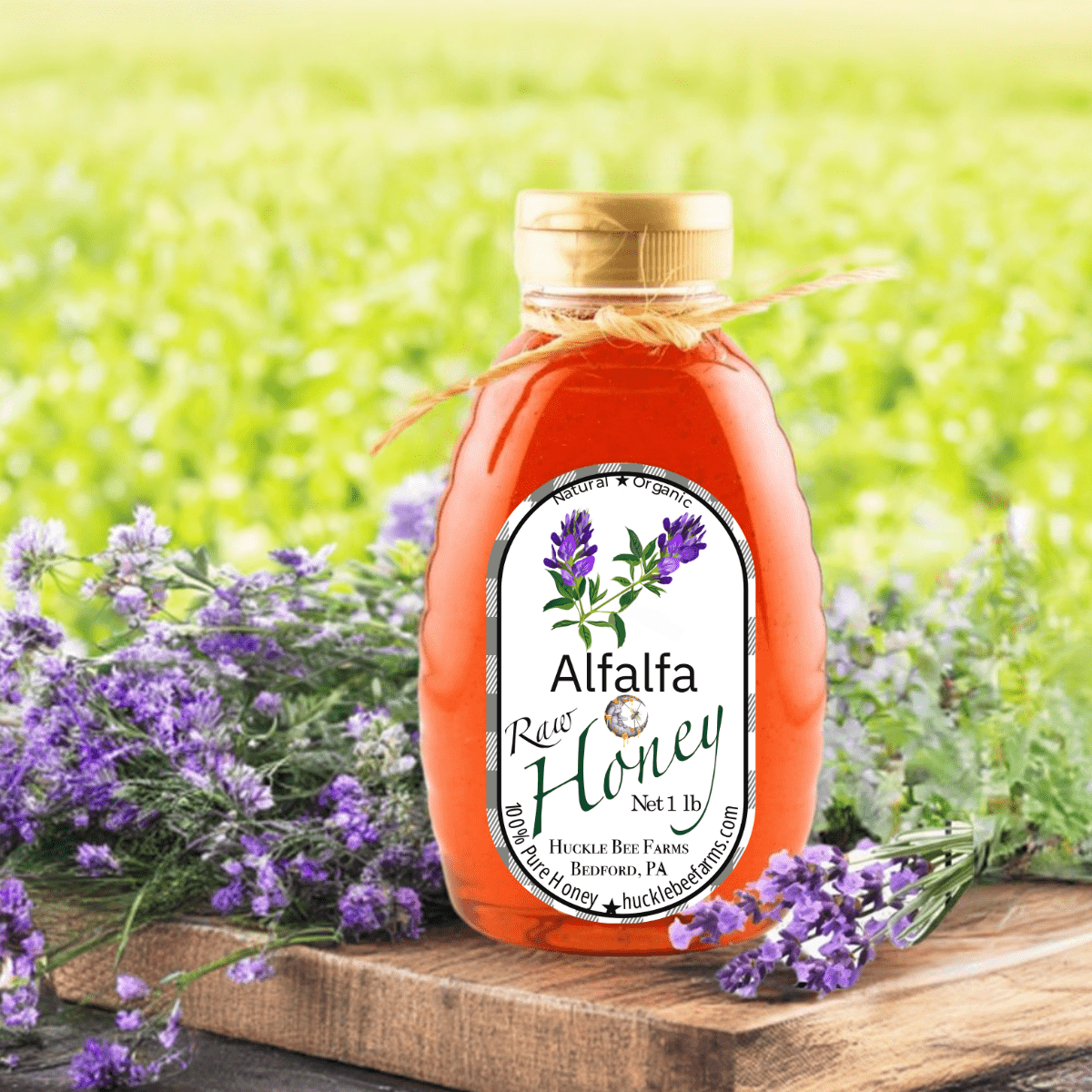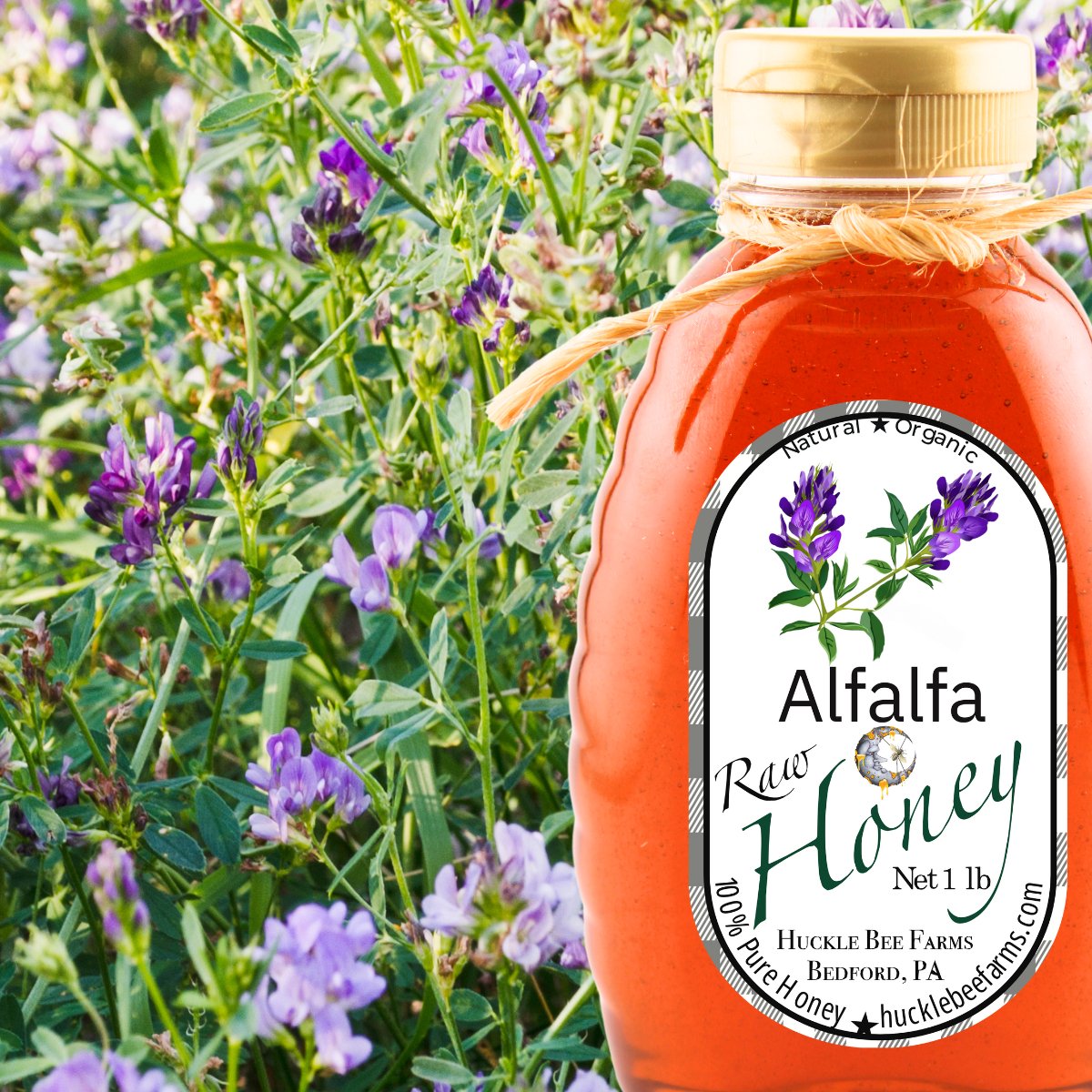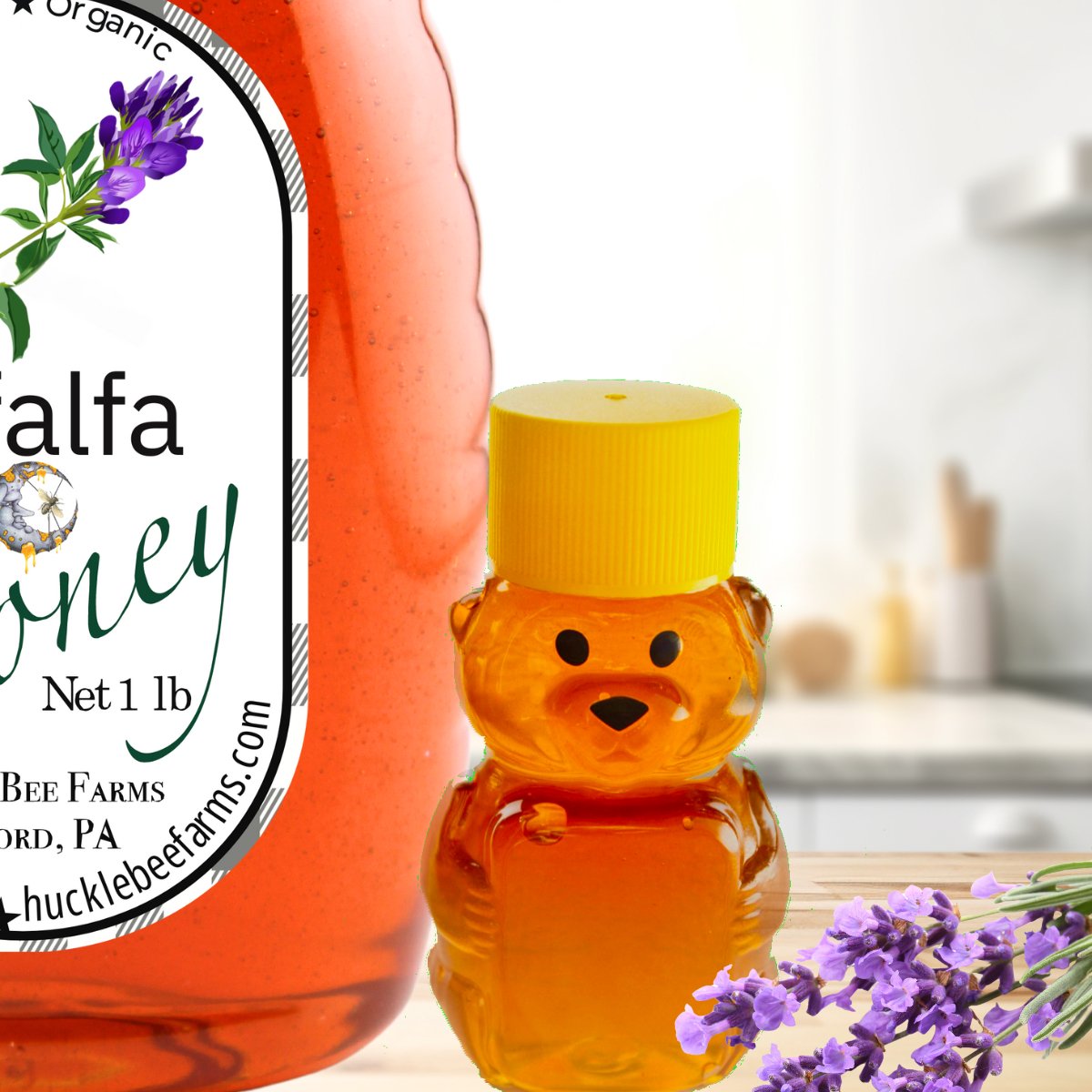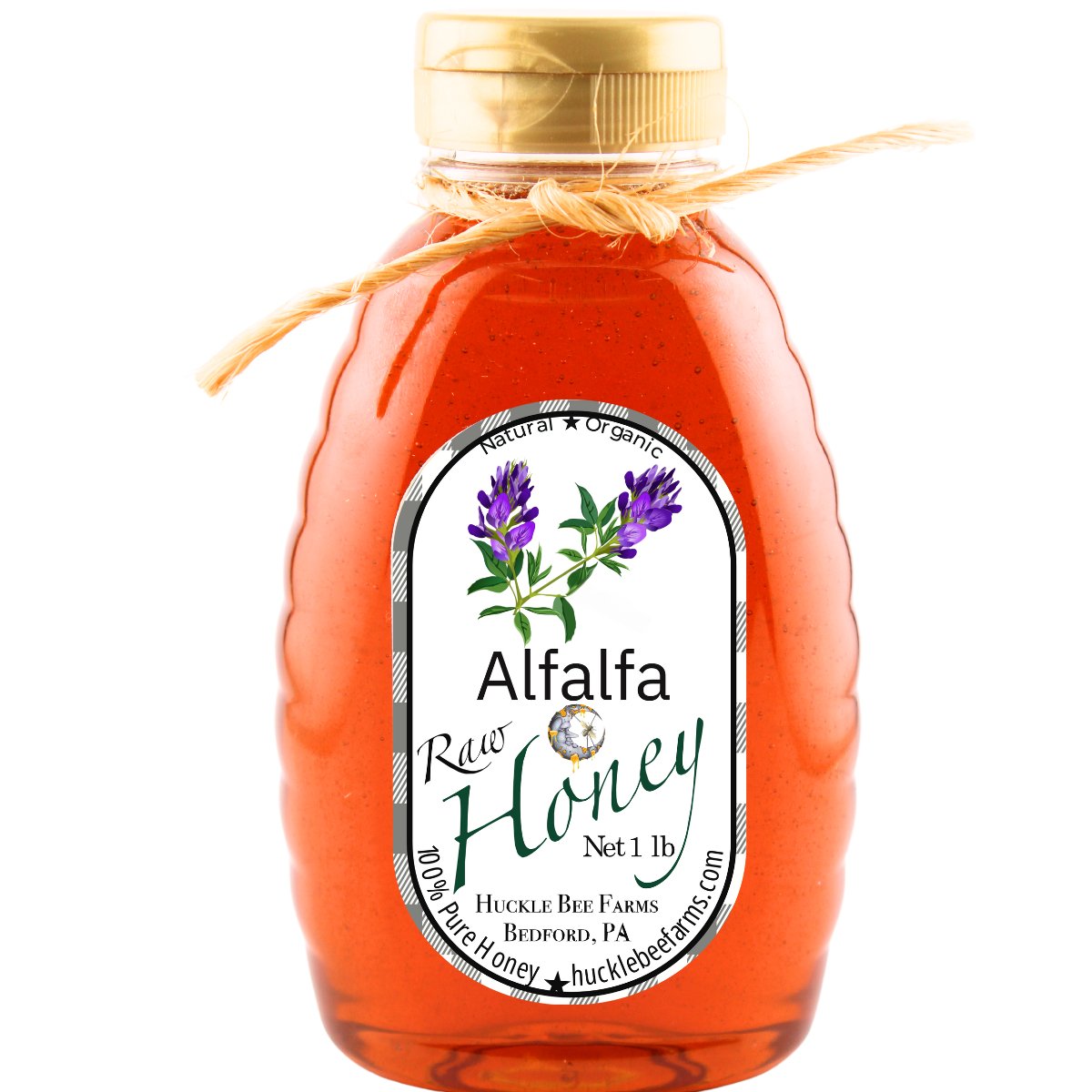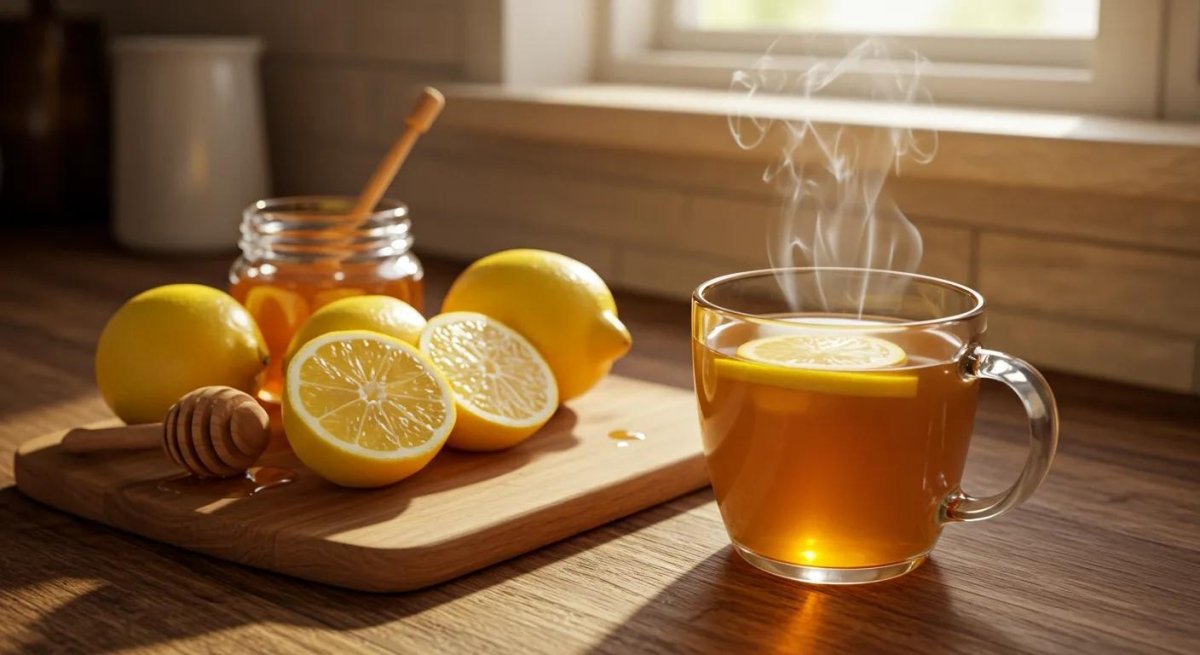
Lemon Honey Remedies for Soothing Sore Throat: Natural Relief and How to Use Them
Table of contents
Discover How Lemon Honey Eases Sore Throat Discomfort
A scratchy, irritated throat often arrives with colds, allergies, or seasonal changes, and many people seek fast, gentle relief without heavy medication. This guide explains how honey and lemon work together as a natural remedy—honey coats and soothes irritated mucous membranes while lemon adds acidity and vitamin C to loosen mucus and improve palatability. You will learn the biological mechanisms behind honey and lemon, simple step-by-step recipes for tea and gargles, evidence-based benefits for cough and throat care, and safe-use precautions for children and sensitive users. Practical variations, a comparison of honey and lemon forms, and tips to incorporate these remedies into a wellness routine are included so you can choose the right approach for daytime relief, bedtime soothing, or quick gargle treatments. Throughout, the article references artisan, raw-infused options such as Lemon Honey from Huckle Bee Farms LLC as context for choosing quality ingredients that match the remedy goals.
Why Are Honey and Lemon Effective for Sore Throat Relief?
Honey and lemon relieve sore throat symptoms through complementary mechanisms: honey acts as a demulcent that coats and soothes throat tissue while honey’s bioactive enzymes and antioxidants provide mild antimicrobial and anti-inflammatory effects. Lemon contributes acidity and vitamin C to thin mucus, improve taste, and encourage fluid intake—those actions together reduce irritation and make rest and hydration more comfortable. Current research shows honey reduces cough frequency and intensity in upper respiratory infections, while vitamin C supports immune function and symptomatic recovery when paired with adequate rest and fluids. Understanding these mechanisms sets the stage for practical recipes and safe-use guidance that follow.
"Honey and Lemon for Cough and Sore Throat Relief"
The relevance and use of honey and lemon that is used as home remedies to alleviate cough symptoms, especially when dealing with a common cold or sore throat. The mechanisms of action of honey and lemon are discussed.
Relevance and Use of Honey and Lemon Water for Cough, MZ Sadikan
Honey and lemon offer several direct symptomatic benefits:
- Soothing coating effect from viscous honey that suppresses cough triggers.
- Mild antimicrobial action via enzymatic hydrogen peroxide generation and antioxidants.
- Acidic lemon juice that helps loosen mucus and supplies vitamin C support.
Together these effects make Lemon Honey remedies an effective first-line, nonprescription option for symptomatic throat care that dovetails with rest and hydration. The next section details honey’s antimicrobial and soothing properties to clarify why raw, unpasteurized varieties are often preferred.
What Are the Antimicrobial and Soothing Properties of Raw Honey?
Raw honey contains enzymes, trace antioxidants, and compounds that contribute to antimicrobial and anti-inflammatory action; one mechanism is enzymatic production of low levels of hydrogen peroxide that inhibit microbial growth. The viscous, high-sugar composition also creates a protective coating over mucous membranes, reducing mechanical irritation and the coughing reflex. Compared with pasteurized honey, raw and unheated honey tends to retain more enzymes and volatile components that contribute to flavor and potential therapeutic benefit. These properties explain why raw honey is commonly recommended for cough and throat comfort, but remember the safety rule: honey is contraindicated for infants under 12 months due to botulism risk.
These biochemical and physical actions naturally lead to a closer look at how lemon complements honey’s effects, which is covered in the next subsection.
How Does Lemon Boost Immunity and Break Down Mucus?
Lemon provides vitamin C, citric acid, and aromatic compounds that support immune function and improve mucus clearance; vitamin C contributes to immune cell performance while acidity can reduce mucus viscosity. Fresh lemon juice contains more volatile flavors and micronutrients than many bottled concentrates, which can increase palatability and encourage drinking—important when hydration aids recovery. The tang also helps mask bitterness and makes honey-based preparations more acceptable, especially for children and those with reduced appetite. Use fresh lemon where possible to maximize flavor and nutrient benefit while keeping concentrations mild to avoid throat or dental irritation.
Understanding lemon’s complementary role leads to a summary of the scientific evidence supporting combined Lemon Honey use, which follows next.
'Lemon Honey for Sore Throat Relief: A Systematic Review'
The home remedy of taking Lemon honey along with a lime or calamansi to soothe a sore throat has long been practiced in many cultures across the world, and it is commonly used for the symptomatic relief of cough and throat irritation.
Antibacterial effects various types of honey and citrus on Streptococcus pyogenes: a systematic review., NS Mohamad, 2018
What Scientific Evidence Supports Honey and Lemon for Sore Throat?
Clinical and systematic reviews indicate honey reduces cough frequency and severity in upper respiratory infections, and several randomized trials report symptomatic relief comparable to or better than common cough suppressants for short-term use. Evidence for lemon is more indirect—vitamin C supports immune function and acidic juice can improve mucus clearance and fluid intake—but when combined with honey, the practical symptomatic improvements are widely reported in clinical and observational contexts. Recent studies emphasize honey’s benefit for nighttime cough and sleep quality in children over one year and adults, while advisories stress that honey is not suitable for infants under 12 months. These findings support Lemon Honey as symptomatic relief rather than a cure, and they inform safe, effective home-use strategies described in the recipes ahead.
How to Make Lemon Honey Tea for Sore Throat: Step-by-Step Recipes

Lemon Honey tea is a simple, reproducible remedy that soothes the throat, encourages hydration, and can be adapted to target congestion or sleep. The basic approach is warm water, fresh lemon, and a measured spoon of honey; attention to water temperature preserves honey’s beneficial enzymes while releasing aroma from lemon and optional herbs. Below are the core ingredients, precise preparation steps, and creative variations so you can tailor the remedy to daytime congestion, bedtime rest, or child-friendly mildness. Use raw, unpasteurized Lemon Honey for optimal enzyme retention and flavor when available.
Ingredients list introduction: the following lists the classic components and optional add-ins for targeted effects.
- Fresh hot water (not boiling) to avoid degrading honey enzymes.
- 3 tablespoon Lemon Infused Honey
- Optional: slices of fresh ginger for congestion, chamomile for relaxation, or a pinch of turmeric for anti-inflammatory support.
These components form a versatile base that adapts to symptom needs and flavor preferences. The next subsection breaks down specific ingredient choices and why they matter.
What Ingredients Do You Need for Classic Lemon Honey Tea?
Classic Lemon Honey tea requires three core ingredients: warm water, fresh lemon juice, and honey measured to taste; proportions are flexible but common guidance is 3 tablespoon of Lemon Honey in an 8–12 ounce cup. Choose raw, unpasteurized honey for greater retention of enzymes and antioxidants, and prefer freshly squeezed lemon for vitamin C and volatile oils that boost flavor and mucus-thinning action. If you want an artisan option, consider a raw Lemon Honey that is infused for consistent lemon notes—this can simplify preparation and improve compliance. Keep water warm rather than boiling to preserve honey’s bioactive compounds while still releasing soothing steam and aromas.
This ingredient choice leads directly into best-practice preparation steps to maximize soothing effect and preserve active properties, discussed in the next subsection.
How Do You Prepare Lemon Honey Tea for Maximum Soothing Effect?
To preserve honey’s beneficial enzymes, pour water that is warm (about 120–140°F / pleasantly hot) rather than boiling directly over honey; allow freshly boiled water to cool for a minute before adding honey. Stir honey into the warm water until dissolved, and optional herbs; sip slowly in small mouthfuls to maximize mucous membrane coating and avoid throat shock from very hot liquid. For nighttime relief, combine with calming herbs like chamomile and drink 20–30 minutes before bed to reduce cough and improve sleep. Maintaining gentle temperatures and slow sipping enhances both the biochemical preservation of honey and the physical coating effect critical for symptom relief.
After the preparation steps, consider variations that target specific symptoms such as congestion or sleep, which the next subsection outlines.
What Variations Can Enhance Lemon Honey Tea for Sore Throat?
Different add-ins shift the remedy toward congestion relief, anti-inflammatory support, or sleep promotion depending on need; choose ginger for congestion and warming action, chamomile for calming and sleep, or turmeric for anti-inflammatory effect. Below is a concise comparison table that maps common variations to their key ingredient and the symptom they best target so you can pick the right mix quickly.
| Variation | Key Ingredient | Target Symptom |
|---|---|---|
| Ginger-Honey-Lemon | Ginger Honey | Congestion, nausea |
| Chamomile-Honey-Lemon | Chamomile tea | Nighttime soothing and sleep |
| Turmeric-Honey-Lemon | Ground turmeric | Anti-inflammatory support |
| Cinnamon-Honey-Lemon | Cinnamon stick | Warming comfort, flavor |
These variations let you rotate preparations to avoid palate fatigue and to tailor remedies by time of day; choose milder blends for children and stronger, spiced blends for adults who need added anti-inflammatory or decongestant support. The next section covers benefits of raw honey and lemon in clinical and practical contexts.

What Are the Benefits of Using Raw Honey and Lemon for Cough and Throat Care?
Raw honey and lemon together provide cough suppression, throat-coating relief, and supportive nutrient input that eases symptoms and improves comfort during respiratory infections. Honey’s physically protective coating reduces mechanical irritation and may reduce coughing frequency, while lemon’s acidity and vitamin C can loosen mucus and support immune cell function to complement symptomatic care. For people seeking alternatives to over-the-counter suppressants, Lemon Honey combinations offer evidence-supported, low-risk symptom management when used appropriately and not given to infants under one year. Below are concrete benefit categories and practical use-cases to help readers decide when to use which form.
Key benefits summarized in a short list:
- Immediate soothing and cough suppression from honey’s coating effect.
- Mild antimicrobial and anti-inflammatory contributions from raw honey components.
- Enhanced mucus clearance and palatability with lemon, encouraging hydration.
To make selection easier, the following table compares honey and lemon forms—raw vs. pasteurized honey and fresh juice vs. bottled concentrate—against attributes relevant to remedy use.
| Ingredient Form | Antimicrobial Strength | Soothing/Coating Ability | Flavor Profile | Best Use |
|---|---|---|---|---|
| Raw unpasteurized honey | High (retains enzymes) | High (viscous coating) | Rich, complex | Tea, spoon dosing, syrup |
| Infused lemon honey | Moderate-high | High (adds citrus) | Consistent lemon flavor | Quick tea, children-friendly |
| Pasteurized honey | Lower (reduced enzymes) | Moderate | Milder, less complex | Cooking, non-therapeutic uses |
| Fresh lemon juice | N/A | Aids mucus thinning | Bright, tangy | Tea, gargle |
| Bottled lemon concentrate | N/A (lower volatiles) | Less effective | Less fresh | Convenience-only |
How Does Raw Honey Help Suppress Cough and Reduce Throat Irritation?
Raw honey suppresses cough by physically coating irritated mucous membranes and reducing receptor stimulation that triggers coughing; its viscosity provides a transient protective film. Enzymatic activity and antioxidants in raw honey can exert mild antimicrobial and anti-inflammatory effects that reduce local irritation and may shorten the perceived severity of cough symptoms. Practical application favors dosing before sleep to reduce nocturnal coughing and improve sleep quality for both adults and children over one year. For ongoing or severe cough, Lemon Honey remedies are supportive but should be combined with medical guidance when red flags appear.
What Role Does Lemon Play in Supporting Respiratory Health?
Lemon contributes vitamin C and citric acid, which help maintain mucosal immunity and reduce mucus viscosity when used in modest, regular amounts. The fresh citrus aroma may also aid breathing comfort and encourage warming fluids that facilitate mucus clearance. While lemon is not a direct antimicrobial treatment, it enhances palatability and compliance with soothing drinks and supports immune processes alongside rest and hydration. Use fresh lemon for the best flavor and modest concentrations to limit dental or throat irritation with frequent use.
Can Lemon Honey Remedies Support Immune Health During Cold and Flu?
Lemon Honey primarily provide symptomatic support—reducing cough intensity, easing throat pain, and encouraging fluid intake—rather than acting as standalone cures for infections. Vitamin C from lemon supports immune function, and honey’s antioxidants contribute to an environment that favors recovery, but neither replaces vaccines or medical treatments for bacterial infections. When used as part of a broader recovery plan that includes rest, hydration, and medical evaluation for severe or prolonged illness, Lemon Honey remedies can improve comfort and may reduce the need for stronger symptomatic medications. If symptoms worsen or persist beyond a few days, seek clinical assessment.
How Can You Use Lemon Honey Gargle for Quick Sore Throat Relief?

A Lemon Honey gargle is a fast, targeted way to coat throat tissues and deliver acidity that can loosen secretions; it’s especially useful for acute throat irritation and brief symptomatic relief. Gargles work by mechanically bathing the posterior pharynx with a soothing solution that reduces irritation and temporarily decreases the cough reflex. This section provides a simple recipe, safe frequency guidelines, and precautions to ensure effective and safe use. Because gargling involves risk of choking for very young children, it is intended for older children and adults who can safely gargle and expectorate.
Here’s a quick how-to list introducing the simple gargle recipe and usage steps.
- Warm water (8 ounces) mixed with 1-1/2 teaspoon Lemon Honey.
- Tilt head back slightly, take a small sip, gargle for 10–15 seconds, then spit out.
- Repeat 2–3 times per session, and perform sessions every 4–6 hours as needed.
Those steps prioritize safety and effectiveness; the next subsection gives precise ratios and technique details.

What Is the Simple Lemon Honey Gargle Recipe?
A practical ratio for a Lemon Honey gargle is approximately 8 ounces of warm water, 1-1/2 teaspoon of Lemon Honey; warm water should be comfortably hot but not scalding. Stir until the honey dissolves, take a small sip, tilt the head back slightly, gargle for 10–15 seconds, then spit into a sink; repeat this cycle two to three times per session. The coating effect of honey combined with lemon’s acidity helps ease irritation and may reduce immediate coughing, especially before sleep or speaking events. Always test the temperature before gargling and avoid swallowing large amounts of citrus-concentrated solution.
"Honey and Lemon Water Gargle for Post-Extubation Symptoms"
Effect of gargling with Honey and Lemon Water on cough, sore throat, and hoarseness following endotracheal extubation: A clinical trial study Effect of gargling with Honey and Lemon Water on cough, sore throat, and hoarseness following endotracheal extubation:
A clinical trial study, AH Pishgooie, 2009
How Often Should You Gargle for Best Results?
For most adults and older children, gargling every 4–6 hours provides symptomatic relief without excessive acidic exposure or irritation; aim for 2–4 sessions per day depending on symptom severity. Avoid overuse—frequent, high-acidity gargles can increase dental enamel exposure to acid; after several uses, rinse the mouth with plain water or brush teeth later to protect enamel. If symptoms persist despite regular gargling or you develop fever, swollen glands, or breathing difficulty, consult a healthcare provider promptly. Combining gargling with sipping warm Lemon Honey tea and rest enhances overall symptom control.
Are There Any Precautions When Using Lemon Honey Gargle?
Precautions include never giving honey to infants under 12 months due to botulism risk, avoiding honey if there is a known allergy to bee products, and taking care with citrus if you have acid reflux or sensitive teeth. For those allergic to citrus or bees, alternatives include a saltwater gargle or herbal teas like chamomile that provide soothing without the same allergens. If dental sensitivity or enamel erosion is a concern with repeated lemon use, dilute lemon more heavily, reduce frequency, and rinse the mouth after use. These safeguards help ensure that Lemon Honey gargles provide benefit with minimal downside.
Why Choose Huckle Bee Farms Lemon Honey for Your Sore Throat Remedies?
Huckle Bee Farms LLC offers raw, infused honeys and handcrafted teas that align with the quality attributes most relevant to sore throat remedies: raw unpasteurized honey preserves enzymes and antioxidants, while an infused Lemon Honey provides consistent citrus flavor that improves compliance in home remedies. The brand’s small-batch craftsmanship and focus on pollinator protection are relevant to users who prioritize sustainability and product traceability, since diverse, healthy pollinator ecosystems can influence nectar variety and honey character. Mentioning their Lemon Honey as a choice for recipes helps readers select an ingredient that matches the mechanisms discussed earlier—coating, mild antimicrobials, and pleasant lemon flavor for palatability.
Below is a product-focused EAV table mapping Huckle Bee Farms’ Lemon Honey attributes to practical remedy benefits so readers can clearly see feature-to-benefit relationships.
| Product | Attribute | Benefit for Sore Throat Remedy |
|---|---|---|
| Lemon Honey (raw, infused) | Raw unpasteurized | Retains enzymes and antioxidants that support antimicrobial and soothing actions |
| Lemon Honey (infused) | Consistent lemon flavor | Improves palatability and compliance for teas and spoon dosing |
| Small-batch / handcrafted | Traceability | Greater quality control and predictable sensory profile for remedies |
| Brand mission | Pollinator protection | Supports diverse nectar sources that influence honey complexity and purity |
What Makes Huckle Bee Farms Lemon Honey Unique and Effective?
Huckle Bee Farms’ Lemon Honey is positioned as raw and infused, which matters because raw processing retains more of honey’s enzymes and volatile compounds while infusion adds consistent citrus notes for flavor. Small-batch production increases traceability and gives artisanship that can translate into more consistent therapeutic properties like viscosity and aroma that improve coating and palatability. These attributes together support the main mechanisms that make honey effective for throat relief—coating, mild antimicrobial action, and flavor-driven compliance—without replacing medical care when it’s needed. Choosing an infused raw honey simplifies preparation while preserving key remedy benefits.
How Does Ethical Sourcing and Pollinator Protection Enhance Product Quality?
A commitment to pollinator protection supports diverse and healthy nectar sources, which can influence honey’s flavor complexity and reduce the likelihood of monotonous, single-source profiles that may rely on intensive monocultures. Ethically sourced honey from producers who prioritize pollinator health often reflects careful hive management and attention to environmental factors that affect nectar collection and honey purity. For consumers, this translates into a higher-quality ingredient for remedies where flavor, aroma, and bioactive retention matter. Supporting pollinator-friendly producers aligns wellness choices with broader environmental benefits.
Where Can You Buy Huckle Bee Farms Lemon Honey for Sore Throat Relief?
Huckle Bee Farms offers Lemon Honey as part of their handcrafted product line and it is included among curated options such as the Tea Lover’s Honey Bundle and complementary herbal tea blends that pair well with Lemon Honey remedies. Shoppers looking for an infused, raw Lemon Honey will often find it featured alongside chamomile lemon herbal tea bags and other handcrafted teas that support the same symptom-use cases covered here. For local discovery, search for the brand’s local business listing and product pages to confirm availability and current offerings. Using an artisan Lemon Honey simplifies recipe execution and ensures the product attributes discussed above are present.
What Are the Most Common Questions About Lemon Honey Remedies for Sore Throat?
Can Children Safely Use Honey and Lemon for Sore Throat?
Honey should not be given to infants under 12 months because of the risk of infant botulism; for older children, diluted Lemon Honey solutions are generally safe and can reduce nighttime cough and throat discomfort. Use milder concentrations for young children—less lemon and less honey per cup—and supervise consumption to avoid choking or throat irritation. If a child has known allergies to bee products or citrus, avoid honey or lemon and consult a pediatrician for alternative remedies. For persistent or severe pediatric symptoms, seek medical evaluation.
How Quickly Does Lemon Honey Tea Relieve Sore Throat Symptoms?
Lemon Honey tea often provides immediate, temporary relief for throat pain and reduces cough intensity within minutes due to coating and palatability effects, while objective reductions in cough frequency may be noticeable over hours to a day. Clinical studies suggest improvements in nighttime cough and sleep within 24 hours for many users, though full recovery timing depends on the underlying illness and individual factors. Repeat dosing every 4–6 hours is reasonable for symptom control, but if symptoms persist beyond several days or worsen, consult a healthcare professional. Expect symptomatic relief rather than a cure from home remedies.
Are There Any Side Effects of Using Honey and Lemon Remedies?
Possible side effects include allergic reactions to bee products or citrus, dental enamel erosion from frequent acidic exposure, and the severe infant risk of botulism if honey is given under 12 months. Mitigation strategies include using diluted lemon, rinsing the mouth or brushing teeth after frequent acidic use, avoiding honey for infants, and choosing alternatives (saltwater gargle, herbal teas) for allergy sufferers. These precautions ensure benefits while minimizing risks for regular or repeated use.
Can Lemon Honey Remedies Replace Medical Treatment for Sore Throat?
Lemon Honey provide symptomatic support but do not replace medical evaluation for severe, persistent, or complicated infections; seek care for high fever, difficulty breathing, severe throat pain, swollen glands, or symptoms lasting more than a week. Antibiotics are reserved for confirmed bacterial infections such as strep throat and should only be used under clinician guidance. Use Lemon Honey remedies as adjunctive comfort measures alongside rest, hydration, and professional assessment when needed.
How to Incorporate Lemon Honey Remedies Into Your Natural Wellness Routine?
Incorporate Lemon Honey remedies into a broader wellness strategy that emphasizes hydration, sleep, hygiene, and targeted use of complementary ingredients; use the remedies strategically for symptom control during cold season and rotate variations to maintain palatability. Store honey in a cool, dry place and keep lemons fresh or frozen in squeezed portion trays to preserve vitamin C and flavor for quick preparation. Below are practical routine tips and mixing suggestions to maintain consistent, safe use across the season.
A short list of routine integration tips:
- Prepare a batch of infused honey syrups for quick dosing before bedtime.
- Rotate variations (ginger for congestion, chamomile for sleep) to match symptoms.
- Maintain hydration with warm fluids and limit dehydrating beverages like alcohol.
These practices make remedies easy to use and reduce the chance of overusing acidic components; the next subsections elaborate on complementary ingredients, hydration, and consistent-use tips.
What Other Natural Ingredients Complement Honey and Lemon for Throat Care?
Ginger, chamomile, and turmeric are effective complementary ingredients: ginger adds warmth and mild bronchodilatory benefits for congestion, chamomile promotes relaxation and sleep when combined with honey-lemon at bedtime, and turmeric contributes anti-inflammatory curcumin that complements honey’s antioxidants. Pairing these ingredients with honey and lemon tailors remedies to specific symptoms—choose ginger blends for daytime congestion and chamomile blends for evening soothing. Use mild proportions and test tolerability, especially in children or people with medication-sensitive conditions.
How Does Hydration Enhance the Effectiveness of Lemon Honey Remedies?
Hydration thins mucus, supports mucociliary clearance, and enhances the benefits of Lemon Honey preparations by making it easier for the body to expel secretions and for soothing fluids to coat tissues. Aim for steady intake of warm and cool fluids throughout the day, favoring low-sugar herbal teas and warm broths that complement Lemon Honey drinks. Avoid excessive caffeine and alcohol that promote dehydration, and pair Lemon Honey remedies with electrolyte-rich fluids if illness causes reduced intake. Proper hydration amplifies remedy effects and shortens recovery time.
What Are Tips for Consistent Use of Lemon Honey Remedies During Cold Season?
For seasonal consistency, prepare small jars of lemon-infused honey for quick spoon dosing, freeze lemon juice in ice-cube trays for easy portioning, and rotate tea variations to prevent palate fatigue; store honey at room temperature away from direct heat. Use remedies as adjunctive measures with good sleep, hand hygiene, and vaccination where appropriate, and consult medical care when symptoms exceed typical home-remedy scope. These routines help maintain safe, effective use while supporting overall respiratory wellness during peak cold and flu months.
Conclusion
Utilizing Lemon Honey remedies offers a natural, effective approach to soothing sore throats and alleviating cough symptoms through the combined benefits of honey's coating properties and lemon's acidity. These remedies not only provide immediate relief but also support hydration and immune function, making them a valuable addition to your wellness routine. For optimal results, consider incorporating high-quality ingredients like Huckle Bee Farms' Lemon Honey into your preparations. Explore our selection today to find







